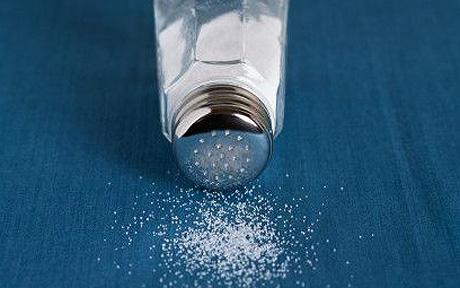The Prevalence of Salt in the Diet
Salt is probably the least talked about pariahs of the American diet. It’s sort of up there with fat, sugar or cholesterol, but doesn’t seem to get quite the negative press as the latter three.
That’s fair enough, because it’s also the least dangerous. While too much of it is clearly not good for you, your individual mileage with salt can vary……a lot. So much that the recommended daily allowances for salt are often useless. (If you want more information on that, read this paper, gated version).
Salt’s also the most prevalent “killer ingredient”, and by far the most stealthy. The typical diet has truckloads of salt poured into it, and most of it goes unnoticed.
Why?
Because salt is added to food for a lot of reasons that have nothing to do with salt. It erases bitterness, helps preserve food, and also increases other flavor sensations like savoriness and sweetness. That’s in addition to the salt that’s added to foods just to make them taste salty.
Most people are also fairly insensitive to the amount of saltiness in their foods. Many old people are completely de-sensitized, and most people have to have a very strong salty taste before they get sick of a food.
For this reason, salt gets added to everything that’s manufactured. I wrote before on the most common sources of salt in the diet, and the list surprises a lot of people. The biggest stores of salt in the diet are bread, deli meat, and pizza.
None of those foods are considered “salty”, which explains the point made above. For this reason, most people are poor estimators for how much salt they get in their diet. The average american gets about 3600 mg, which is almost twice the recommended amount.
Where Does Salt In Your Diet Come From?
In general, people over estimate how much salt they get in their diet from adding it themselves, and underestimate how much of it comes from external sources. The breakdown is 85%/15%, in favor of processed foods. So the next time you hear someone urge their spouse to put down the salt shaker because they need to cut back, you can politely correct them about their misinformed thinking 🙂
How To Remove Salt From Your Diet
The ubiquity of salt more or less leaves one solution to cutting it out of the diet: stop buying processed food. It’s embedded at every step in the food supply, and any other food source, even if it’s branded as being healthy, will more than likely have its fair share of added sodium. This is true whether or not you are eating out, shopping at the store, or buying foods that have health badges you deem trustworthy: organic, non-GMO, fair trade, etc. None of those distinctions has any influence on how much salt is in food. None.
In fact, they often have the opposite effect, because people assume those certifications make a food more likely to have less of harmful ingredients like fat, salt, or sugar. But that’s not the case, and organic fair-trade salt is still salt, and it actually behaves in much the same way as regular ol’ salt does in the body.
If you want a good overview of salt, how it’s added to food, and its uses in the food process, I’d recommend this paper: http://www.ncbi.nlm.nih.gov/books/NBK50958/


Very interesting article on salt. I never knew these were the reasons that salt is added to food like this. My grandfather had morbidly high blood pressure due to high sodium and ended up dying of a stroke. I also never eat deli meats because I find them overly salty. However, I love pizza. Perhaps I can make a healthy pizza and can’t give that up yet 🙂
LikeLike
I personally have a hard time tasting the salt in meat or pizza, or bread for that matter. Which makes it difficult. I’m like the rest of the population that way…..a poor judge of salt content in my diet.
LikeLike
I recently had to reduce my sodium and had to cut back on deli meats and cheese. I rarely eat any of that now. I’ve gotten used to cutting sodium out of my diet and now think most prepared foods are uneatable due to their excessive saltiness.
LikeLike
[…] good for you, they’re mostly preservatives and salt. I’ve written previously about how difficult it is to remove salt from your diet, and this is a great way to do it.Each scoop of Incredible Greens contains the equivalent of 4 […]
LikeLike
Is it ok to completely remove salt from your diet?
LikeLike
Merjam,
Yes it probably is. The reason I say so is because even if you were to completely “eliminate” it many foods still naturally contain sodium and that would be enough to sustain you.
LikeLike